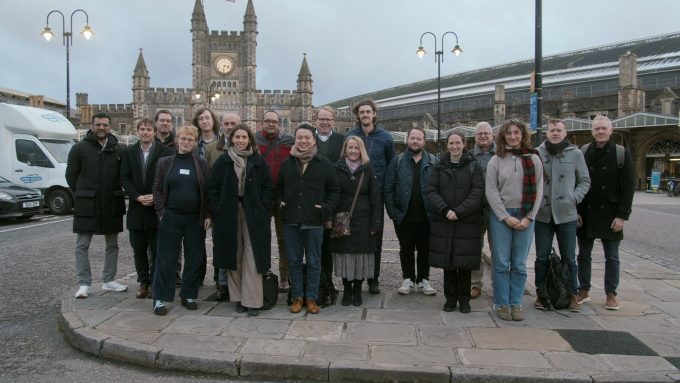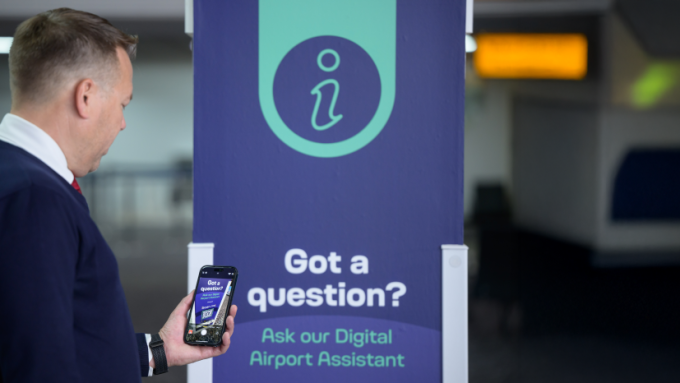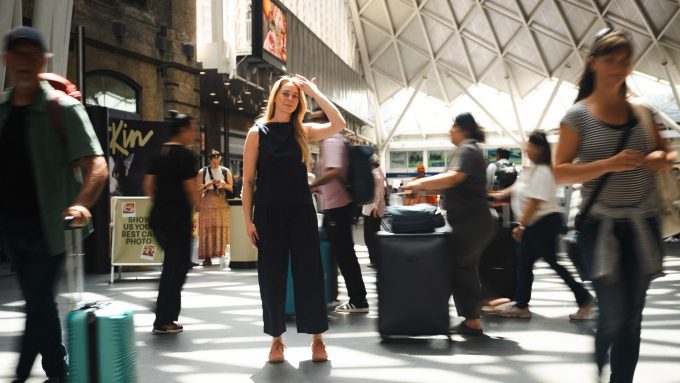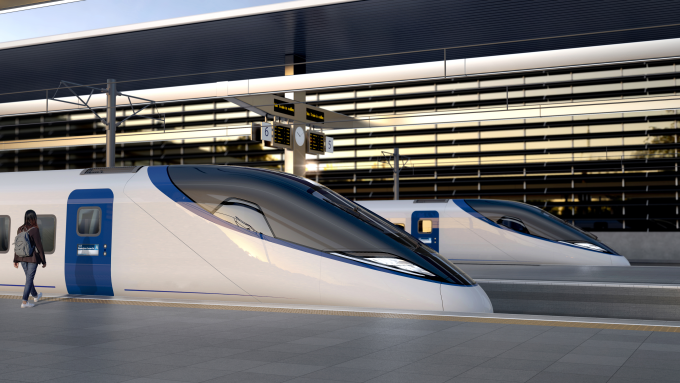
Meet the innovator using AI to predict the impact of transport delays

Unexpected delays on the railway are naturally frustrating for passengers. But it can be just as vexing not knowing how long it will take for issues to be resolved.
Step forward software specialist Andre Wang and his start-up company Moonbility, which has developed an AI-powered ‘impact visualisation’ digital twin platform.
It allows rail operators to simulate, in real-time, the effect of disruption caused by infrastructure failures across the network. This could be used to support control staff when informing individuals of delays at stations or on trains.
Andre has taken eight years’ worth of historic data from the East Coast Mainline between London and Edinburgh, showing every unplanned incident, where it happened and the length of time it took to be resolved.
He then created a machine learning program to analyse the impact of problems such as signal failures, damaged overhead lines and broken rails, in a proof-of-concept for London North Eastern Railway. Based on past incidents, AI can then summarise the likely impact of a new issue reported by rail staff, and predict how long it would take before normal services can resume.
Not only that, but depending on where the problem takes place, the program will calculate the likely knock-on impact of a delay further afield, both for train services on the East Coast route and adjoining lines.
Andre says the fundamental aim of the digital twin is to reduce the amount of time people waste not knowing how long a problem will take to resolve. “If people become more comfortable with commuting and travelling with their families – and can trust public transport more – it should help get more people out of their cars,” he adds.

Helping wheeled users on buses and trams
Andre has recently taken learnings from his impact visualisation trial on the East Coast Mainline to create a second public transport tool called ‘Wheels on Board’ with the Clean Futures Accelerator. The idea is to provide real-time updates for passengers with wheelchairs or buggies as to whether buses or trams have a free space available on board the next service.
Moonbility was welcomed onto the second cohort of the programme last year to develop software that analyses CCTV feeds showing the availability of dedicated spaces for wheeled vehicles, to improve confidence of finding a space for passengers with reduced mobility.
Its trial involves placing cameras on board a dummy tram carriage inside the Very Light Rail National Innovation Centre in Dudley – run by research and technology organisation BCIMO – and was supported by National Express and Transport for West Midlands.
“The beauty of Clean Futures is it gives us the opportunity to work with operators without them having to make big financial commitments upfront, and Connected Places Catapult offers great support and useful contacts with officials from Government.”Andre Wang, founder, Moonbility
A third application for Moonbility’s digital twin involves improving efficiencies within logistics. The company is beginning a proof of concept with a West Midlands based parcel delivery firm to further understanding of how goods flow through a transport network.
Entrepreneurial outlook from an early age
Andre was born in the Taiwanese capital of Taipei. From an early age, he got involved in the family business which manufactured systems and products to detect and extinguish fires in buildings, and counted the Taiwanese Metro among its clients.
“I rarely saw Dad when I was young, as he was always working,” remembers Andre. “But whenever there was the chance, he would take me to sites where buildings were under construction.”
He excelled at mathematics and represented his high school in a national competition, before studying geomatics engineering – the combination of geospatial analysis and maths – plus industrial design at university in Taiwan. He later enrolled on a Masters degree in innovation and entrepreneurship at the University of Warwick.
“I had wanted to start a company since I was at school, and knew from the family firm how to create 3D models, produce products and find manufacturers, so I tested a few ideas.” His first was to create and sell a guitar pick that doubled as a necklace, which resulted in an incredible 90% profit margin.
He attended the London College of Fashion to study fashion management and went on to work with the Ordnance Survey to develop location data technology. Andre later established a software company to combine both interests called FavourUp, to help luxury retail brands locate their most outspoken social media champions and encourage individuals to post supportive messages.
He decided to make a move towards transport and set up Moonbility last year after a frustrating experience of travelling in London. “We had arrived back from Taiwan with our newborn daughter and the train was cancelled. So we went to catch a bus, but had to wait for four to pass before we could get on with her buggy,” he says. “If I had known there wasn’t a space for us beforehand, we would have walked.”

Aiming to speak to the top people
Andre says the future of transport in the UK looks encouraging, with reform of bus franchises and the introduction of Great British Railways promising more power to local leaders.
But he adds: “For more innovation to happen, SMEs need a simpler process to work with infrastructure owners and operators. Conventional acceptance processes can take years: and many of us don’t have years.”
He advises other SMEs looking to find work with large clients to communicate with them directly. “If you want to be in the game, you need to be in the room with the right people. Go to lots of events, find the senior managers and get them on board early. Once you find the first one, the rest should follow.”
Read about the impact of the Clean Futures Accelerator.
Clean Futures is being led by Connected Places Catapult in collaboration with the BCIMO, Coventry University and CU Services Limited. It is part of the wider West Midlands Innovation Accelerator, funded by UK Government and delivered by Innovate UK, which is designed to bolster the region’s innovation and R&D capability and spark commercial growth and investment.






